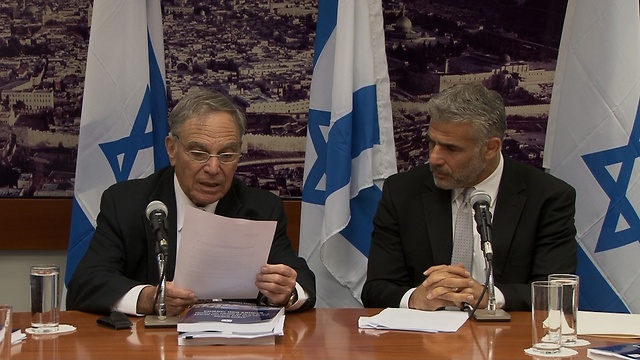
A government panel on Monday proposed sharply raising taxes on mining activities, but it softened the blow by recommending a progressive, rather than flat, rate ranging from 25 to 42 percent.
The hike drew the ire of the country's largest mining firm, potash and specialty chemicals maker Israel Chemicals (ICL) , which has lobbied heavily against the tax.
In a final report, the 2nd Sheshinski Committee recommended a progressive tax of 25 percent after companies reach an annual return on investment of 14 percent, rising to 42 percent for a return above 20 percent.
In an interim report issued in May, the panel had recommended a flat 42 percent tax rate. Companies would also pay the government royalties of 5 percent of their revenue.
ICL, which mines minerals from the Dead Sea, said the recommendations were populist and called on Finance Minister Yair Lapid to reject them.
"The adoption of the report's conclusions will make him responsible for the resulting serious consequences of unemployment as well as social and human upheaval in the Negev, and the severe blow to industry in the Negev and to the economy that will result from it," ICL said.
ICL has said it would cancel planned investments worth 2.5 billion shekels, reevaluate another 3.5 billion shekels in investments, divert investment to other parts of the world, close its magnesium plant and accelerate the implementation of efficiency plans at its plants in the Negev desert.
Lapid said he was not swayed by ICL's threats.
"We do not want to harm plants and places of work and we need the economy to continue to be attractive for investors but our job here is to create a fair game where the money does not stay with the wealthy few but comes to the public," Lapid told reporters.
"Natural resources are for the public and the public needs to get benefit from them," he added.
Israel's government currently takes in about 23 percent in taxation from mining companies but that would ultimately rise to 46 to 55 percent, or an additional 400 million shekels ($107 million).
The first Sheshinski Committee in 2011 raised taxation on oil and gas companies after two huge natural gas finds off Israel's Mediterranean coast.
The prospect of paying less to the state than previously expected pushed ICL's shares up 1.3 percent in Tel Aviv. Still, the shares are still down 46 percent since the start of 2013, partly due to the threat of higher taxes as well as falling potash prices.
Accountant General Michal Abadi-Boiangiu said the final report was balanced and good for ICL, which had revenue of $6.2 billion in 2013 and adjusted net profit of $1 billion.
ICL, which last month listed its shares in New York, is 14 percent owned by Potash Corp of Saskatchewan .
















